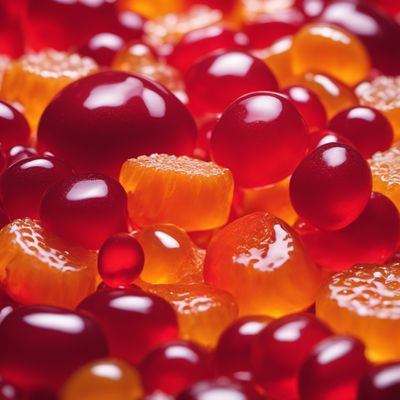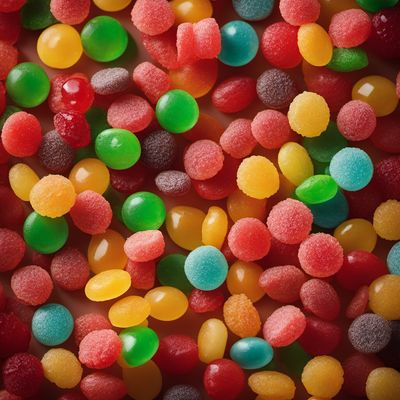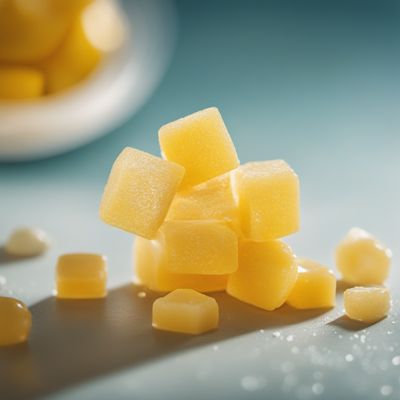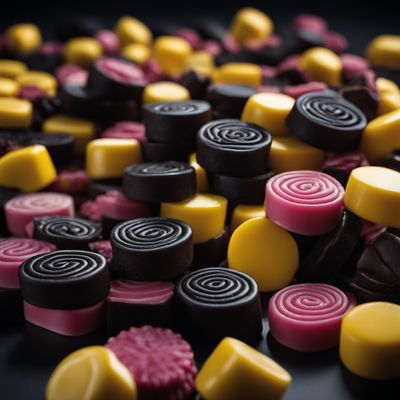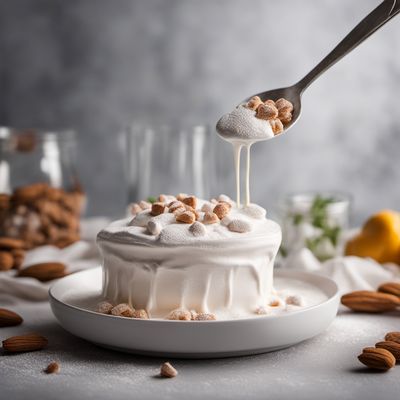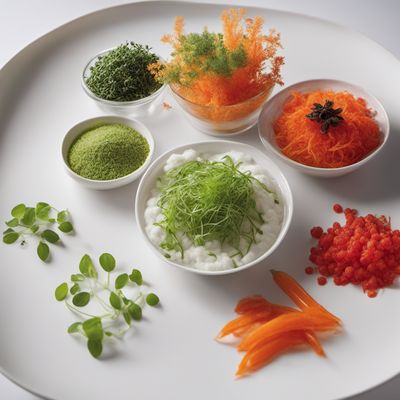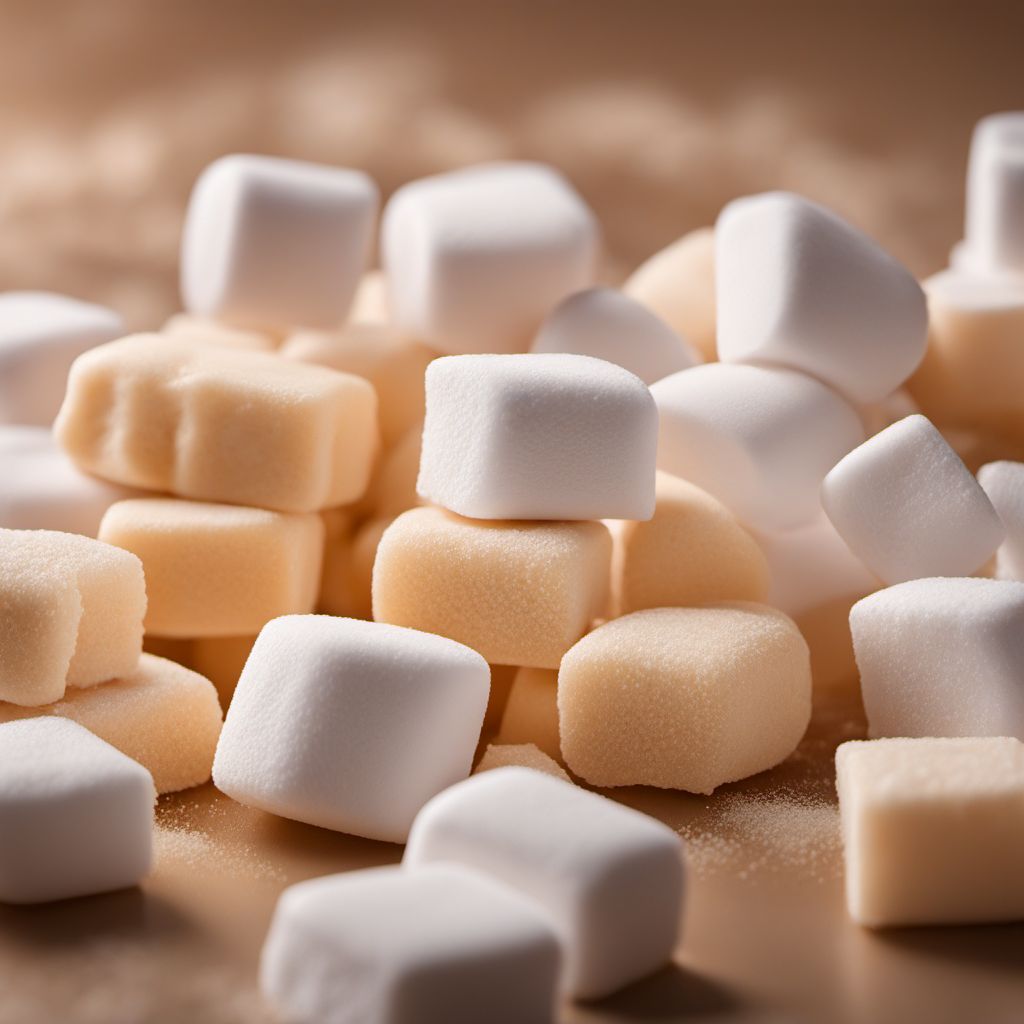
Ingredient
Foamed sugar products (marshmallows)
"Pillowy Delights: The Sweet World of Marshmallows"
Marshmallows are soft, spongy confections made from sugar, gelatin, and corn syrup. They have a light and airy texture, with a smooth and glossy surface. These sweet treats are typically white, but can also be found in a variety of colors and flavors. When bitten into, marshmallows offer a slight resistance before melting in the mouth, leaving behind a sugary sweetness.
Origins and history
Marshmallows have a rich history that dates back to ancient Egypt, where the sap of the marshmallow plant was used to create a sweet treat. In the 19th century, the modern marshmallow recipe was developed, replacing the plant sap with gelatin. Originally, marshmallows were made by hand, but with the advent of industrial production techniques, they became more widely available. Today, marshmallows are enjoyed worldwide and have become a staple in many cultures.
Nutritional information
Marshmallows are low in fat and cholesterol-free. However, they are high in sugar and should be consumed in moderation. A serving of marshmallows typically contains around 100 calories.
Allergens
Marshmallows may contain gelatin, which is derived from animal sources, making them unsuitable for vegetarians or vegans. Additionally, some marshmallows may contain traces of wheat or soy, posing a risk for individuals with allergies or sensitivities.
How to select
When selecting marshmallows, look for packages that are tightly sealed and free from any signs of moisture or clumping. Opt for marshmallows that are soft and pliable, as they will have a fresher texture. Avoid marshmallows that appear dry or hardened.
Storage recommendations
To maintain the freshness of marshmallows, store them in an airtight container in a cool, dry place. Avoid exposing them to moisture or extreme temperatures, as this can cause them to become sticky or hard.
How to produce
Marshmallows can be produced at home by combining gelatin, sugar, corn syrup, and flavorings. The mixture is heated, whipped, and then allowed to set before being cut into desired shapes.
Preparation tips
Marshmallows can be enjoyed as a standalone treat, toasted over an open flame for s'mores, or used as an ingredient in various desserts such as hot chocolate, rice crispy treats, or rocky road ice cream. When toasting marshmallows, ensure they are evenly heated to achieve a golden brown exterior and a gooey center.
Culinary uses
Marshmallows are commonly used in desserts such as cakes, cookies, and pies to add a fluffy texture and a touch of sweetness. They can also be melted and used as a topping for hot beverages or incorporated into ice cream and milkshakes for added creaminess.
Availability
Marshmallows are widely available in grocery stores, supermarkets, and confectionery shops worldwide.
